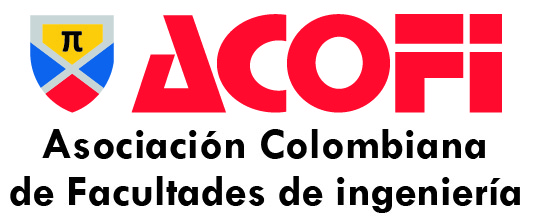Methodology teamwork´s 4321 to improve learning in computer programming using collaborative learning and cooperative learning
DOI:
https://doi.org/10.26507/rei.v13n25.821Keywords:
Collaborative Learning, cooperative learning, programming teaching, working methodology, computer programmingAbstract
The purpose of the research this article is based is the finding of some ways that let us to improve the programming computer learning using the strengths of a working group for an average student using collaborative and cooperative learning. This research was developed in the 1st semester of Systems Engineer program during three years and we use a quantitative and qualitative methodology with numerical results in the assessments and interaction and communication with the students. We obtained results for the discussion about the working groups that bring some criteria for the academic work in the classroom. We conclude that is possible to improve the personal learning of the computer programming if the work in groups is bases in a defined methodology, if we use also a defined approach about we want in the classroom and if the students participate actively in this process.Downloads
References
Ausubel, D., Sicología educativa: Un punto de vista cognoscitivo. Ciudad de México: Trillas, 1986, 686 P.
Gonzalez-García, F., Los mapas conceptuales de Novak como instrumentos para la investigación en didáctica de las ciencias experimentales. Enseñanza de las Ciencias, 10(2), pp. 148-158, 1992.
Calvani, A., Connectivism: New paradigm or fascinating potpourri. Journal of e-Learning and Knowledge Society, 4(1), pp. 247-252, 2008. DOI: 10.20368/1971-8829/268
Bruner, J.S., Actos de significado: Mas allá de la revolución cognitiva. Madrid: Alianza Editorial. 2009, 130 P.
Attard, A., Di Ioio, E. and Geven, K., Student centered learning. An insight into theory and practice. Bucarest: Lifelong learning programme - European Community, 2010.
Ausubel, D., Psychology of meaningful verbal learning: An introduction to school learning. New York: Grune & Straton. 1963, 780 P.
Trejos-Buriticá, O., Significado y competencias. Pereira: Papiro, 2013, 130 P.
Diaz-Barriga, F., Estrategias docentes para un aprendizaje significativo. México: McGraw Hill, 2005, 145 P.
Bruner, J.S., Hacia un teoría de la instrucción. Ciudad de México: Hispanoamericana, 1969, 126 P.
Bruner, J.S., El proceso de la Educación. Ciudad de México: Editorial Hispanoamericana, 1963, 200 P.
Bonwell, C. and Eison, J., Active learning: Creating excitement in the classroom. ASHEERIC Higher Education Report No 1(1), 1991. DOI: 10.1177/1052562905283346
Prince, M., Does active learning work? Journal Engineering Education, 93(3), pp. 223-231, 2004.
Dooly, M., Constructing knowledge together, en: Dooly, M., Telecollaborative language learning. A guidebook to moderating intercultural collaboration online, Bern: Peter Lang, 2008, pp. 21-45.
Small, G., El cerebro digital. Madird: Editorial Urano. 2011.
Barriga-Arceo, F. y Hernandez-Rojas, G., Estrategias docentes para un aprendizaje significativo: Una interpretación constructivista. Ciudad de México: McGraw Hill Interamericana, 2002, 241 P.
Martín-Moreno-Cerrillo, Q., Aprendizaje colaborativo y redes de conocimiento. IX Jornadas Andaluzas de Organización y Dirección de Instituciones Educativa, Grananda, España, 2004, pp. 55-70.
Adams, A., Cooperative learning effects on the classroom . Michigan: Northern Michigan University, November 26, 2013.
Mabrouk, P., Cooperative learning and active learning: Models from the analytical sciences. ACS Symposium series 970, 2007, pp. 34-53.
Lumsdaine, E. and Lumsdaine, M., Creative solving problem: Thinking skills for a changing world. New York: McGraw Hill, 2005.
Herrmann, W., Creative brain. New York: The Ned Herrmann Group, 1988, 456 P.
Herrmann, W., The whole brain. New York: McGraw Hill. 2000, 334 P.
Trejos-Buriticá, O., La esencia de la lógica de programación. Pereira: Papiro, 2000, 366 P.
Blanchard, B., Ingeniería de sistemas. Madrid (España): Isdefe, 2000, 256 P.
Trejos-Buriticá, O.I., Fundamentos de programación. Pereira: Papiro. 2006, 130 P.
Cooper, D., Locos por la tecnología. México: Editorial Limusa, 2004, 150 P.
Downloads
Published
Versions
- 2023-08-29 (2)
- 2018-02-01 (1)
How to Cite
Issue
Section
License
Total or partial reproduction of the documents published in the journal is authorized only when the source and author are cited.
| Article metrics | |
|---|---|
| Abstract views | |
| Galley vies | |
| PDF Views | |
| HTML views | |
| Other views | |









